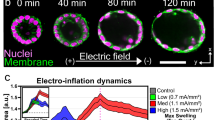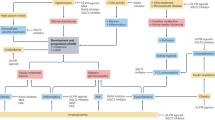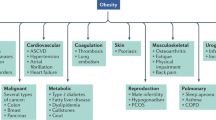Abstract
AROUND half of all humans with essential hypertension are resist-ant to salt (blood pressure does not change by more than 5 mm Hg when salt intake is high)1"5, and although various inbred strains of rats display salt-insensitive elevated blood pressure6, a gene defect to account for the phenotype has not been described. Atrial natriuretic peptide (ANP) is released from the heart in response to atrial stretch and is thought to mediate its natriuretic and vaso-relaxant effects through the guanylyl cyclase-A receptor (GC-A)7. Here we report that disruption of the GC-A gene results in chronic elevations of blood pressure in mice on a normal salt diet. Unexpectedly, the blood pressure remains elevated and unchanged in response to either minimal or high salt diets. Aldosterone and ANP concentrations are not affected by the genotype. Therefore, mutations in the GC-A gene could explain some salt-resistant forms of essential hypertension and, coupled with previous work8, further suggest that the GC-A signalling pathway dominates at the level of peripheral resistance, where it can operate independently of ANP.
This is a preview of subscription content, access via your institution
Access options
Subscribe to this journal
Receive 51 print issues and online access
$199.00 per year
only $3.90 per issue
Buy this article
- Purchase on Springer Link
- Instant access to full article PDF
Prices may be subject to local taxes which are calculated during checkout
Similar content being viewed by others
References
Oparil, S. et al. J. cardiovasc. Pharmac. 12, S56–S69 (1988).
Weinberger, M. H. in Hypertension: Pathophysiology, Diagnosis, and Management (eds Laragh, J. H. & Brener, B. M.) 1999–2010 (Raven, New York, 1990).
Weinberger, M. H., Miller, J. Z., Lust, F. C., Grim, C. E. & Fineberg, N. S. Hypertension 8 (Suppl II), II-127–II-134 (1986).
Kawasaki, T., Deka, C. S., Bartter, F. C. & Smith, H. Am. J. Med. 64, 193–198 (1978).
Fujita, T., Henry, W. L., Bartter, F. C., Lake, C. R. & Delea, C. S. Am. J. Med. 69, 334–344 (1980).
Kimura, G., Frem, G. J. & Brenner, B. M. Curr. Nephrol. Hypertension 3, 1–12 (1994).
Drewett, J. & Garbers, D. L. Endocrine Rev. 15, 135–162 (1994).
John, S. W. M. et al. Science 267, 679–681 (1995).
Chinkers, M. et al. Nature 338, 78–83 (1989).
Atlas, S. A. & Laragh, J. H. in Hypertension: Pathophysiology, Diagnosis, and Management (eds Laragh, J. H. & Brenner, B. M.) 861–883 (Raven, New York, 1990).
Ballermann, B. J., Zeidel, M. L., Gunning, M. E. & Brenner, B. M. in The Kidney (eds Brenner, B. M. & Rector, F. C.) 510–583 (Saunders, Philadelphia, 1991).
Sudoh, T., Kangawa, K., Minamino, N. & Matsuo, H. Nature 332, 78–81 (1988).
Suga, S.-I. et al. Endocrinology 130, 229–239 (1992).
Ogawa, Y. et al. J. clin. Invest. 93, 1911–1921 (1994).
Fuller, F. et al. J. biol. Chem. 263, 9395–9401 (1988).
Nussenzveig, D. R., Lewicki, J. A. & Maack, T. J. biol. Chem. 265, 20952–20958 (1990).
Levin, E. R. Am. J. Physiol. 264, E483–E489 (1993).
Anand-Srivastava, M. B. & Trachte, G. J. Pharmac. Rev. 45, 455–497 (1993).
Koller, K. J. et al. Science 252, 120–123 (1991).
Steinhelper, M. E., Cochrane, K. L. & Field, L. J. Hypertension 16, 301–307 (1990).
Dietz, J. R., Vesely, D. L. & Nazian, S. J. Clin. expl. Pharmac. Hypertension 21, 599–606 (1994).
Sullivan, J. M. & Ratts, T. E. Hypertension 11, 717–723 (1988).
Yamaguchi, M., Rutledge, L. J. & Garbers, D. L. J. biol. Chem. 265, 20414–20420 (1990).
Ishibashi, S. et al. J. clin. Invest. 92, 883–893 (1993).
Ramirez-Solis, R., Davis, A. C. & Bradley, A. Meth. Enzym. 225, 855–878 (1993).
Soriano, P., Montgomery, C., Geske, R. & Bradley, A. Cell 64, 693–702 (1991).
Krege, J. H., Hodgin, J. B., Hagaman, J. R. & Smithies, O. Hypertension 25, 1111–1115 (1995).
Fukamizu, A. et al. J. biol. Chem. 268, 11617–11621 (1993).
Author information
Authors and Affiliations
Rights and permissions
About this article
Cite this article
Lopez, M., Wong, SF., Kishimoto, I. et al. Salt-resistant hypertension in mice lacking the guanylyl cyclase-A receptor for atrial natriuretic peptide. Nature 378, 65–68 (1995). https://doi.org/10.1038/378065a0
Received:
Accepted:
Issue Date:
DOI: https://doi.org/10.1038/378065a0
This article is cited by
-
Localization of natriuretic peptide receptors A, B, and C in healthy and diseased mouse kidneys
Pflügers Archiv - European Journal of Physiology (2023)
-
The Natriuretic Peptides for Hypertension Treatment
High Blood Pressure & Cardiovascular Prevention (2022)
-
Characterizing the role of atrial natriuretic peptide signaling in the development of embryonic ventricular conduction system
Scientific Reports (2018)
-
Natriuretic peptide receptor guanylyl cyclase-A pathway counteracts glomerular injury evoked by aldosterone through p38 mitogen-activated protein kinase inhibition
Scientific Reports (2017)
-
Pharmacogenomics of the Natriuretic Peptide System in Heart Failure
Current Heart Failure Reports (2017)
Comments
By submitting a comment you agree to abide by our Terms and Community Guidelines. If you find something abusive or that does not comply with our terms or guidelines please flag it as inappropriate.



